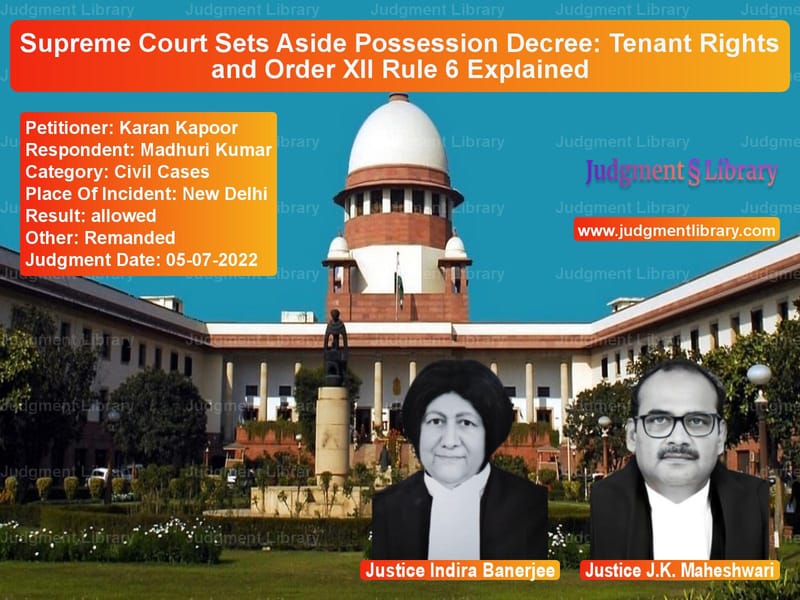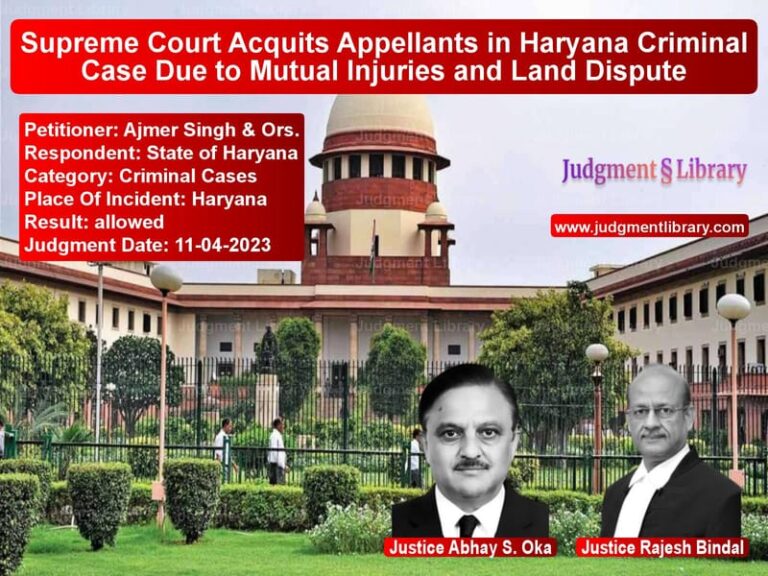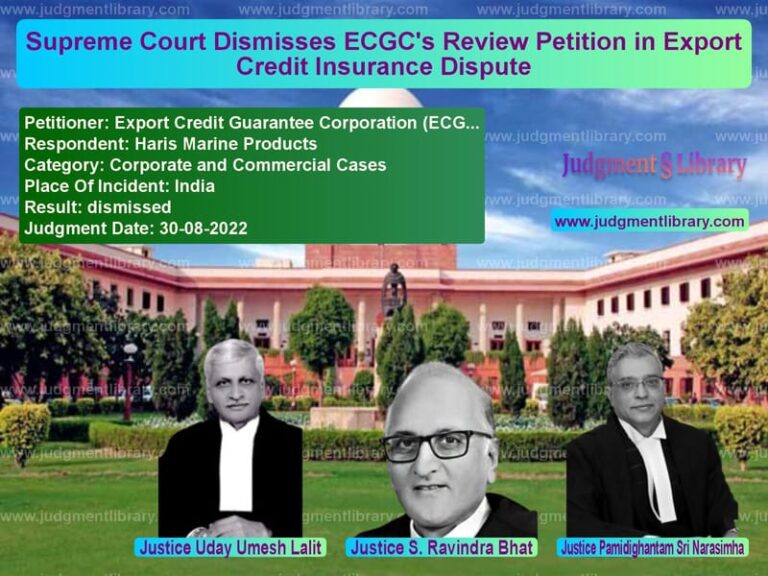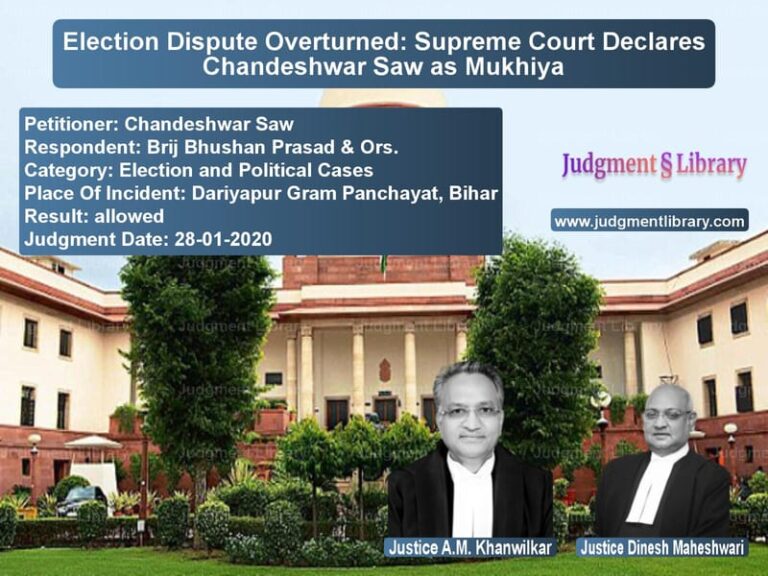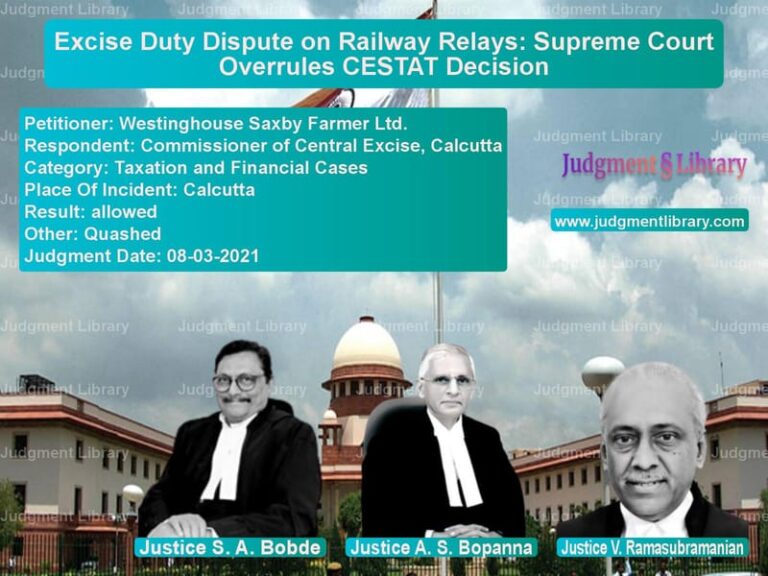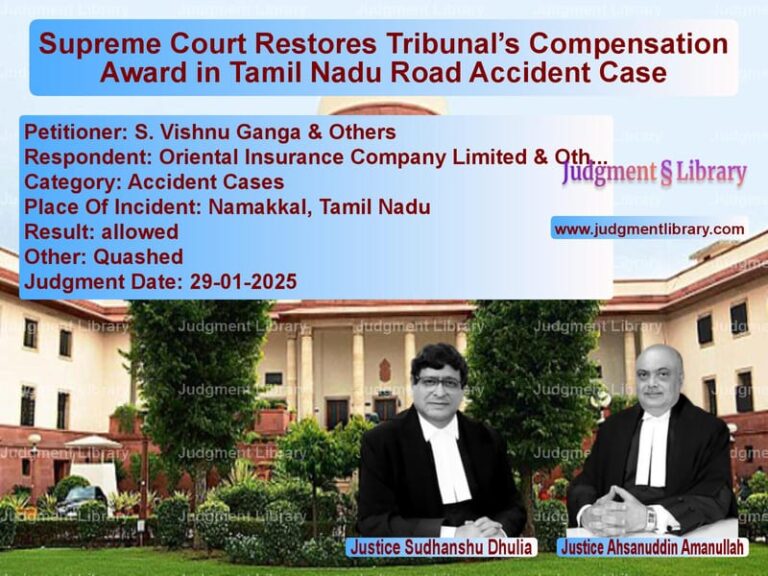Supreme Court Sets Aside Possession Decree: Tenant Rights and Order XII Rule 6 Explained
The case of Karan Kapoor vs. Madhuri Kumar is a significant ruling concerning landlord-tenant disputes and the applicability of Order XII Rule 6 of the Code of Civil Procedure (CPC). This case primarily revolves around whether admissions made in pleadings were sufficient to decree possession in favor of the landlord without a full-fledged trial. The Supreme Court ultimately set aside the High Court and Trial Court decisions and remanded the case for trial.
Background of the Case
The dispute arose from a residential tenancy agreement between the appellant (tenant) and the respondent (landlord) for a property in Greater Kailash-1, New Delhi. The agreement commenced on 07.08.2011, with an initial monthly rent of ₹1,17,000. A subsequent extended lease agreement was executed on 07.08.2013, with rent increased to ₹1,50,000 per month, valid until 06.07.2014.
After the lease expired, the tenant remained in possession of the property without paying rent. The landlord served a legal notice on 12.04.2018, demanding possession and payment of outstanding rent. However, the tenant claimed that an Agreement to Sell (ATS) was executed, under which the landlord had agreed to sell the property, and that the unpaid rent was adjusted as part of the sale consideration.
Key Issues Raised
- Whether a judgment could be passed under Order XII Rule 6 CPC based on admissions in the pleadings.
- Whether the tenant had acquired possessory rights through the alleged Agreement to Sell.
- Whether the case required a full trial to determine the legitimacy of the agreements.
Arguments by the Appellant (Tenant)
- The tenant argued that an Agreement to Sell (ATS-I) was executed on 22.04.2017 for a total sale consideration of ₹3.6 crore, with adjustments made for unpaid rent.
- A subsequent agreement (ATS-II) on 22.05.2017 provided for the transfer of land in Amloh as part of the sale consideration.
- A third agreement (ATS-III) was executed on 30.12.2017, incorporating additional adjustments.
- The tenant contended that the landlord’s acceptance of earnest money constituted part-performance under Section 53A of the Transfer of Property Act, thereby ceasing the landlord-tenant relationship.
- The Trial Court should have conducted a full-fledged trial instead of passing a summary judgment under Order XII Rule 6 CPC.
Arguments by the Respondent (Landlord)
- The landlord maintained that the tenant had not paid rent since July 2014, making his occupation unlawful.
- The Agreements to Sell (ATS) were sham documents and had no legal standing.
- The defendant’s admissions regarding the tenancy, rent amount, and lack of rent payments justified a decree under Order XII Rule 6 CPC.
- The landlord cited the principle that an unregistered sale agreement does not confer ownership rights or alter a landlord-tenant relationship.
Trial Court and High Court Rulings
The Trial Court ruled in favor of the landlord, stating that the admissions made in the tenant’s pleadings were sufficient to grant a decree for possession. The High Court upheld this decision, dismissing the tenant’s appeal and holding that a suit for specific performance of the ATS was irrelevant to the possession claim.
Supreme Court Observations
The Supreme Court, led by Indira Banerjee and J.K. Maheshwari, examined the case and made the following key observations:
- Order XII Rule 6 CPC empowers courts to pass judgments based on clear and unequivocal admissions in pleadings.
- The Court emphasized that such power is discretionary and should be exercised only when the admission is absolute and unambiguous.
- The tenant’s claim that rent had been adjusted as part of the sale agreement raised triable issues that required examination through a full trial.
- The Trial Court and High Court failed to consider the implications of the Agreements to Sell.
- The Supreme Court ruled that mere existence of a landlord-tenant relationship does not automatically justify possession claims under Order XII Rule 6 CPC when substantial defenses exist.
The Court referred to previous cases, including S.M. Asif v. Virendar Kumar Bajaj (2015) 9 SCC 287, which held that judgment under Order XII Rule 6 should be passed only when there is clear, unambiguous, and unconditional admission by the defendant.
Final Judgment
In light of the above findings, the Supreme Court set aside the High Court and Trial Court judgments and remanded the case for trial. The Court directed:
- The Trial Court must conduct a full-fledged trial to examine the validity of the Agreements to Sell.
- The tenant must deposit rent arrears from July 2014 onwards, subject to final adjudication.
- The landlord cannot claim possession under Order XII Rule 6 CPC without first proving that the Agreements to Sell were fraudulent or non-binding.
The ruling reinforces the principle that summary judgments should not be granted when material facts are disputed. It highlights the need for judicial caution in landlord-tenant disputes involving allegations of sale agreements.
Petitioner Name: Karan Kapoor.Respondent Name: Madhuri Kumar.Judgment By: Justice Indira Banerjee, Justice J.K. Maheshwari.Place Of Incident: New Delhi.Judgment Date: 05-07-2022.
Don’t miss out on the full details! Download the complete judgment in PDF format below and gain valuable insights instantly!
Download Judgment: karan-kapoor-vs-madhuri-kumar-supreme-court-of-india-judgment-dated-05-07-2022.pdf
Directly Download Judgment: Directly download this Judgment
See all petitions in Property Disputes
See all petitions in Judgment by Indira Banerjee
See all petitions in Judgment by J.K. Maheshwari
See all petitions in allowed
See all petitions in Remanded
See all petitions in supreme court of India judgments July 2022
See all petitions in 2022 judgments
See all posts in Civil Cases Category
See all allowed petitions in Civil Cases Category
See all Dismissed petitions in Civil Cases Category
See all partially allowed petitions in Civil Cases Category

